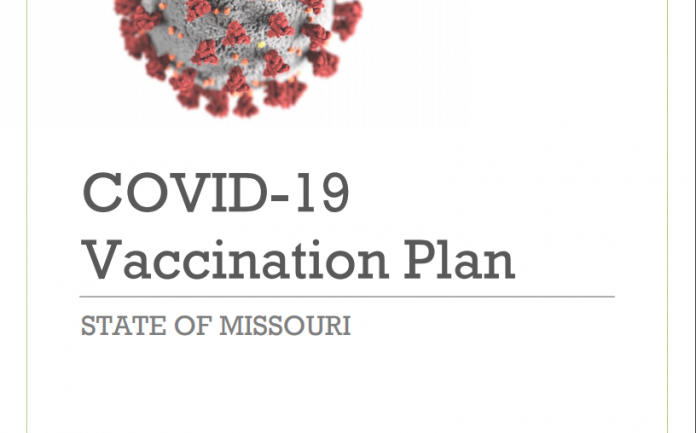JEFFERSON CITY, MO – The state of Missouri released additional guidance for Missouri vaccinators regarding the residency status of those seeking a COVID-19 vaccine in the state.
“Vaccine supply is slightly increasing, but it is still not yet close to meeting the current demand that exists in our state,” Governor Mike Parson said. “State allocations are determined based on population, so it’s important that we use our limited supply each week to vaccinate and protect our Missouri residents.”
With many of Missouri’s metropolitan areas located near state borders, and Missourians and non-Missourians regularly crossing the borders, a common question has been raised regarding who is eligible to be vaccinated in Missouri.
The federal government delegated the prioritization and distribution of the COVID-19 vaccine to individual states and has allocated vaccine doses to each state to distribute accordingly. To date, Missouri vaccinators have administered more than 873,600 total vaccine doses to Missourians.
Just as other states are prioritizing their own citizens, Missouri’s plan prioritizes the vaccination of Missouri residents first. Using a self-attestation process, vaccinators should either use the state’s screening form or a similar process asking individuals to self-attest to their status in a prioritized population and verify their residency.
There are certain exceptions, however. If an employer-based vaccination clinic is arranged, and a Missouri employee lives in a neighboring state, vaccination of this person is allowed.
Infrequently, for the sole purpose of preventing a dose being wasted, it may be necessary to vaccinate a person who is ineligible and has not been determined to have a unique clinical situation that warrants an immediate vaccination. In no case should a vaccinator waste a dose.
To view the residency guidance for vaccinators, please see attachment. For additional guidance and resources, please visit MOStopsCOVID.com/vaccinators. Vaccinators found to not be in compliance with Missouri’s vaccination plan may be penalized and risk losing future vaccine allocations.







